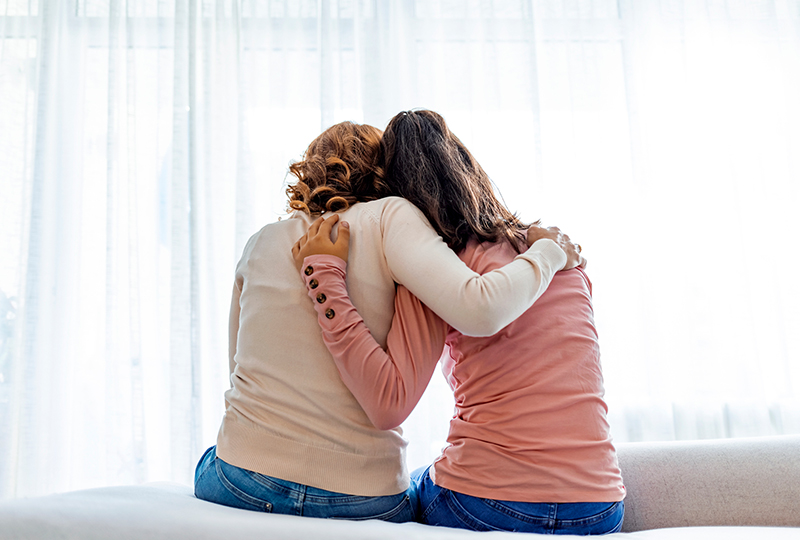How to talk to your child about what’s making them anxious.
With school in full swing, anxiety in teens and kids may crop up. Some students experience anxiety about schoolwork. Others, however, may exhibit social anxiety when back in the classroom. And older students may be feeling nervous about what the future holds. Not every student will feel anxious. But experts want parents to know what to look for, how to talk to their kids about feeling anxious and when to seek help.
“The most important thing for all parents to keep in mind throughout the school year is stay engaged with your teenager,” said Dr. Mary Romano of Adolescent and Young Adult Health at Monroe Carell Jr. Children’s Hospital at Vanderbilt.
Potential reasons for anxiety in teens
Every student is different, and teens can develop anxiety for various reasons. “For a lot of kids, the anxiety comes from academics,” Romano said. “Some students may not feel confident in their school abilities.”
Older students, such as juniors and seniors, may be feeling pressure about what comes next, such as getting into college, choosing a major or starting a job. For others, the social aspects of school may be anxiety-provoking. “Some kids don’t feel comfortable at school,” Romano explained. “They may not feel like people accept them, they may get bullied or they may not have a friend group.”
Another possibility has to do with how the adolescent brain functions — specifically the ability to plan ahead. “What we know about the teenage brain,” she said, “is that the executive function center that allows them to plan and evaluate ‘What would make my life easier?’ isn’t really up and working until they’re much older.”
“Trust your gut. If your kid feels off, then something’s up.”
If this is the source of anxiety, parents can help teenagers train their brain to plan, stay organized and more. However, for some adolescents with a diagnosis of ADD/ADHD this may be an ongoing issue and parents may want to talk to their primary care provider about additional resources.
Finally, parents should also recognize that not every teen will have anxiety. “For some kids, school may actually be a positive place,” Romano said. “A lot of kids don’t thrive over the summer. They miss the structure. And perhaps academics is where they feel most confident.”
Possible signs of teen anxiety
Anxiety often shows itself differently from teen to teen, but Romano noted a few things to look out for. Is your child more irritable or snappy? Are they more tearful than usual? Ultimately, if you notice behavioral shifts in your teen, those changes could be the result of anxiety, depression or other mood concerns. “Maybe there’s something going on at school that you need to ask them about,” she explained. “Trust your gut. If your kid feels off, then something’s up.”
When to seek help
When a student is feeling a little nervous about homework, an exam, or an upcoming game, meet or performance, that type of anxiety can be temporary and healthy. “A little bit of anxiety is normal,” Romano explained. “It makes us successful. It makes us prepare.”
However, if the anxiety is interfering with daily life, Romano added, where a child can’t sleep, eat or do their work, that’s when parents need to step in. Have a conversation with your child about it. However, this is also an indication that you may want to contact your family doctor or pediatrician to help find solutions.
How to talk to your teen about anxiety
Romano provided some helpful tips for talking to your child about anxiety. If you suspect your teen is anxious about schoolwork, you could try this approach: “I was talking to some other parents, and it sounds like eighth-grade math is making everyone kind of anxious? What’s been your experience so far?”
She also said talking to your teen in an indirect way, like when you’re driving somewhere, can also be helpful. “You’re sitting in a car, you’re looking at the road,” she said. “They’re looking straight ahead, so they feel a little bit less threatened during conversations.”
If your teen continues to experience anxiety, your primary care doctor and Adolescent and Young Adult Health are here to help provide resources and find solutions for your child.

Personalized care as they grow
Adolescents and young adults have unique health care needs. The Adolescent and Young Adult Health Clinic at Monroe Carell Jr. Children’s Hospital at Vanderbilt specializes in promoting the physical and emotional well-being of adolescents and young adults from ages 12 to 22.

